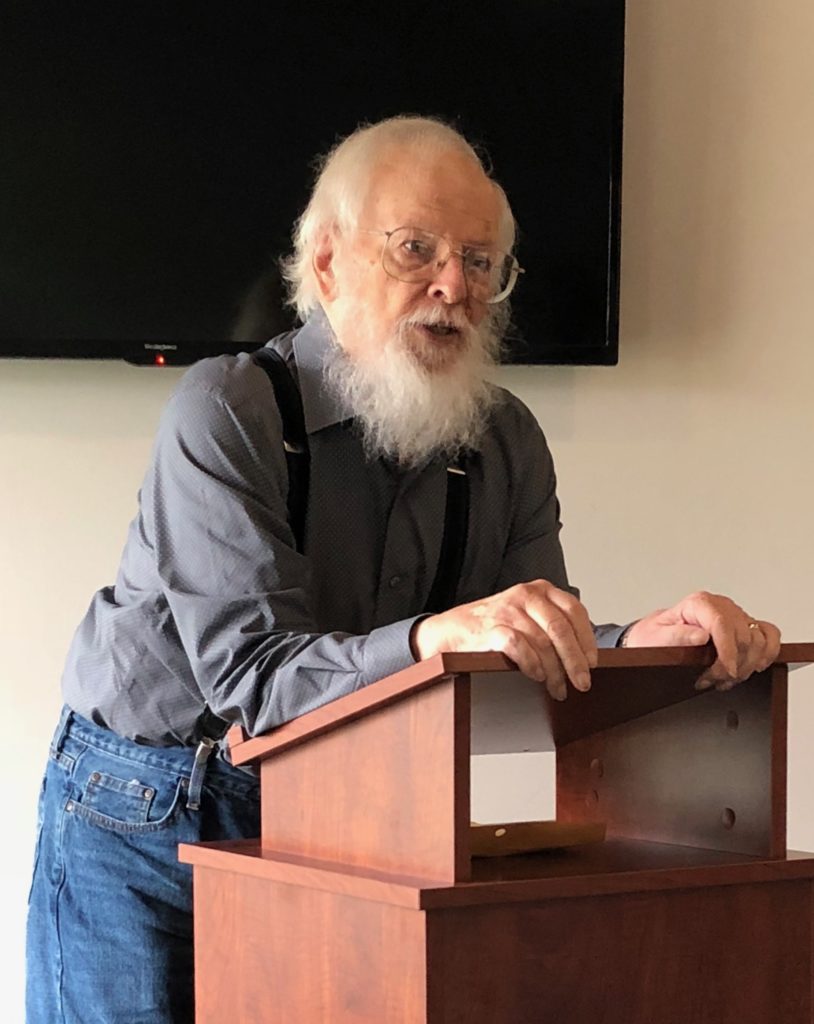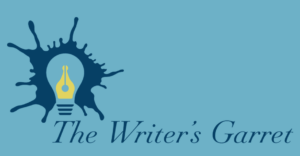Bill Marvel

Bill Marvel is a lifelong journalist and writer, starting at the Rocky Mountain News in 1961; The National Observer, where he was art critic and senior arts editor from 1969 to 1977; and The Dallas Times Herald and The Dallas Morning News, where he was senior feature writer, until 2008. His freelance work has appeared in Smithsonian, American Way, American Heritage History & Technology, D magazine and other pubications. In addition to his work for newspapers and magazines, he has written several books, among them Islands of the Damned, a Marine’s account of the Pacific War co-authored with R.V. Burgin, NAL; and The Rock Island Line, published by Indiana University Press; and Burning Ludlow, a narrative account of the great 1913-14 Colorado coal strike, the bloodiest labor conflict in U.S. History.
If you’ve been to Writers Garret events during the past decade or so and felt like humming a few bars of Santa Claus is Coming to Town, then you know Bill Marvel, Kris Kringle’s younger brother who has a wicked way with words.
I’ve known Bill for a dozen or so years. I first spotted him at The Mayborn Conference, looking every bit The Writer: white hair that hung a bit long, the white beard to match, a little scraggly. A bit Mark Twain, a bit professor, and over all Father Christmas. A little bell went off in my head, telling me to make his acquaintance. I didn’t get to that weekend but a month or so later he came to a Sunday afternoon event at the Garret. I was enrolled in the CAMP program, working on my certificate as a Professional writer. I was focusing on Creative Non-Fiction (CNF) and I needed a mentor. At the time I was the only student focusing on CNF and the list of mentors the Garret had at the time focused on fiction. So, at that Sunday Writers Block I boldly approached Bill and asked him to mentor me. Looking a bit startled that I would ask such a thing, then asking what being my mentor meant, followed by my lame explanation, Bill said Yes. I was delighted. It was the beginning of a beautiful friendship.
Through a series of events, Beatriz Terrazas and I quickly became Co-Directors of the CAMP program and had to come up with some courses. A workshop to help students compete in The Mayborn was high on my list.
The Mayborn Conference for Literary Non-Fiction, which convenes every July, is where I poured my writing energy. Bill, of course, was connected to the conference, so we tested the waters by teaching together Introduction to Creative Non-Fiction, helping students hone their skills to get a manuscript ready for the competition. To our great delight, all of our students were accepted into the conference. Whoo-hoo!
We were a good team, each of us complementing our skills with the other to provide one whole Instructor. We taught the Mayborn Prep class a few more times, keeping our record of every student in our classes qualifying for the competition. Some of our students went on to win publication in Ten Spurs.
Bill and I were founding members of what became Salon Quartre. We felt that four members were best for the writing group we envisioned. Drema Berkheimer and Judith Green were included, and when Judith moved, Robin Underdahl took her place. We had the pleasure of reading each other’s books-in-progress. We read Bill’s book Islands of the Damned (Bill wrote R.V. Burgin’s memoir of WWII).
I asked Bill to share his thoughts on The Writer’s Garret for this piece. He responded with this:
I’ve heard all my life that if you want to learn a subject, teach it. I’m not sure how this might apply to writing, which is not a subject, but a practice. Still, the times I have taught at TWG have certainly made me a better writer. Listening to other writers as they work their way through the same problems — or even different problems from my own — I’ve come to see how we learn writing as musicians learn performance —by listening to others who do it well, or sometimes not so well, and asking, how could it be done better? Artists in any medium learn from other artists. Even painters, those lone wolves of the fine arts, visit one another’s studios to see, not necessarily how it’s done, but that it can be done. By providing this kind of community, almost like a Medieval guild, TWG is serving an ancient need. if it didn’t exist, we writers would have to invent it.
I present to you a paragraph from Bill’s favorite work of his long writing career, Burning Ludlow, an account of a piece of the history of the American West that is mostly overlooked.
There was not much to see, and there was everything to see: the bare framework of bedsprings, the skeleton of a baby carriage. A haze of smoke still hugged the ground, fed by smoldering coal piles and by scraps of flame that sheltered among the collapsed tent floors. Yet there was a strange order to the scene. At regular intervals the big cast-iron Excelsior stoves loomed, their pipes jutting like some eerie memorial over the place where each tent had stood. Oven doors hung open. Coffeepots and kettles, pierced by bullets, awaited breakfast. There were pots of what might have been oatmeal and the blackened, shriveled scraps of what might have been bacon. Broken glass and crockery crunched underfoot. Pails and buckets and big galvanized tubs were scattered everywhere. Monday had been washday.
Anyone who can write this paragraph is a writer you need to read.
